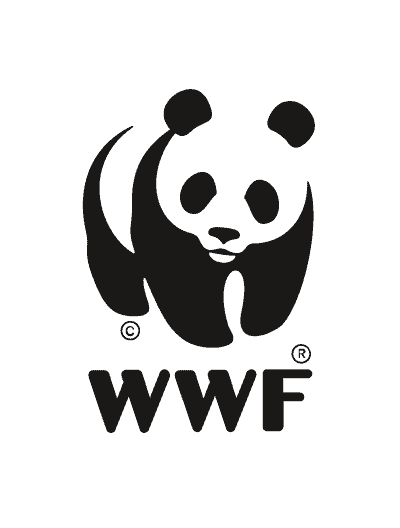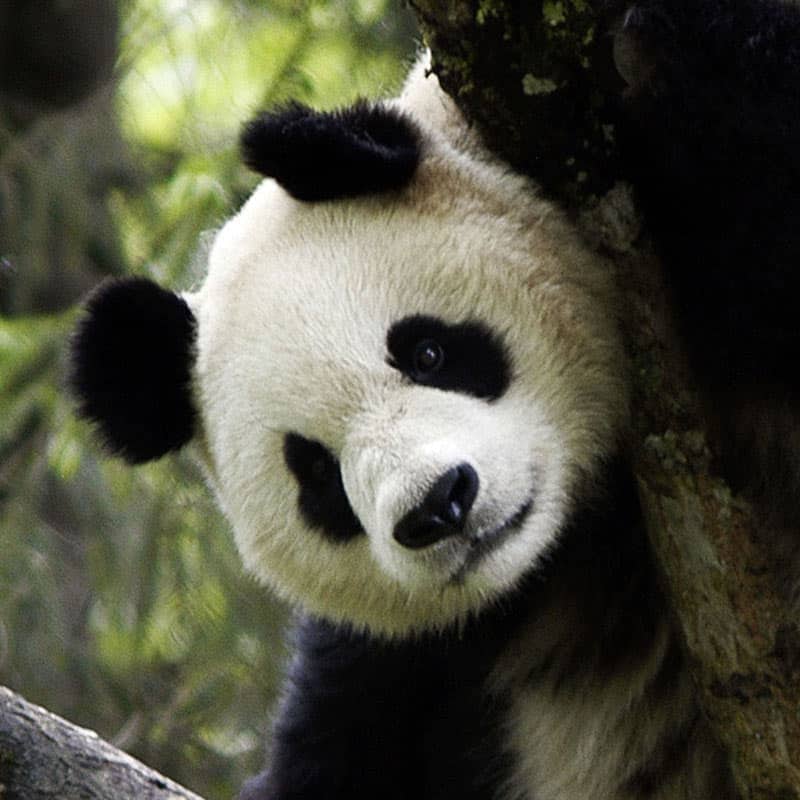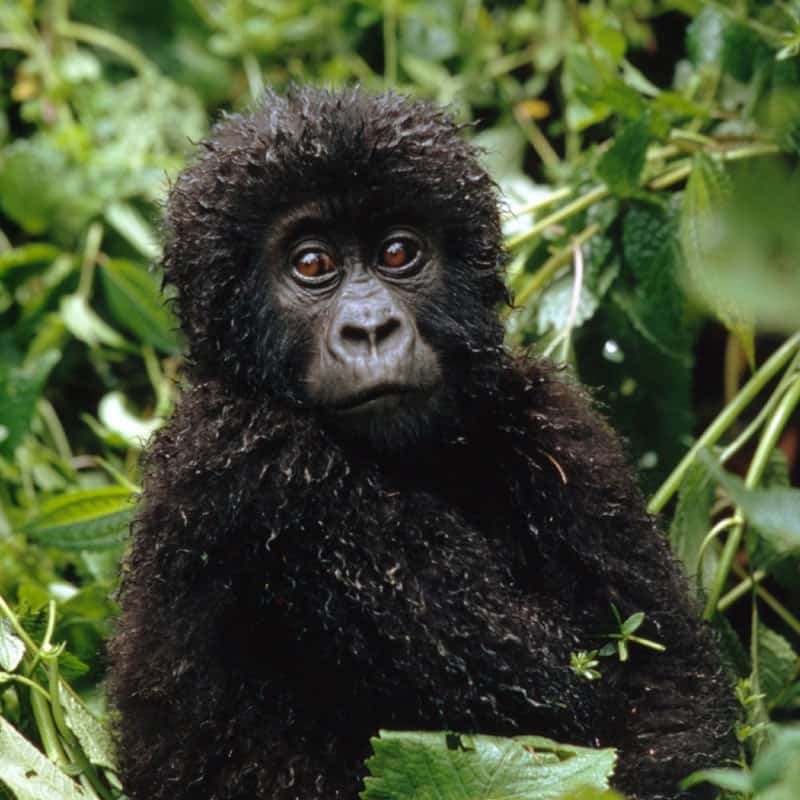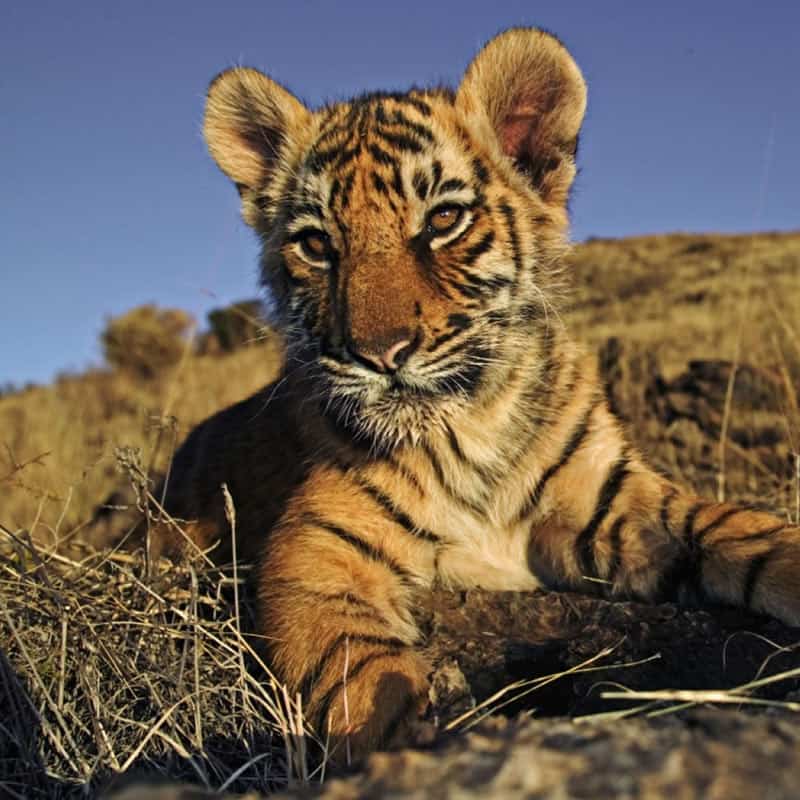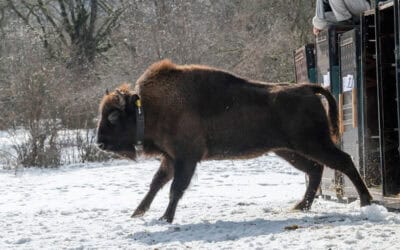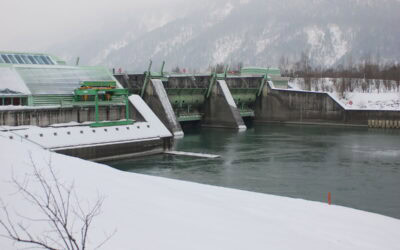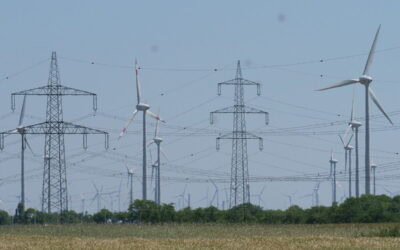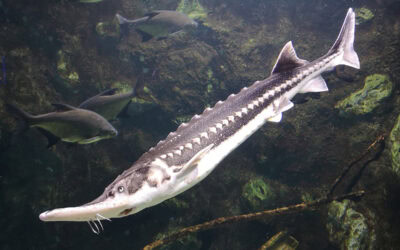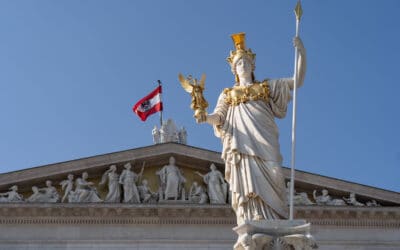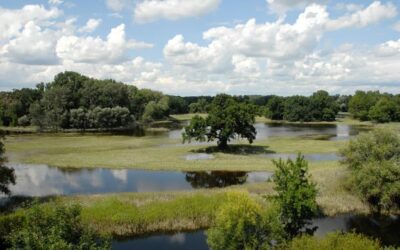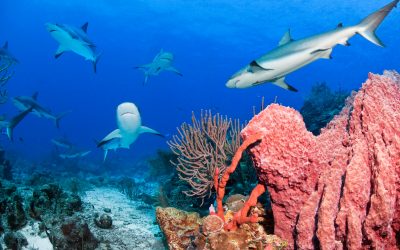Es war der Start eines großen Abenteuers für 18 Wisente: Die Tiere konnten erfolgreich im Kaukasus ausgewildert werden und somit in ihre Heimat zurückkehren. Darunter auch Ina, eine selbstbewusste und forsche Kuh aus Innsbruck.
WWF: "Riverwatcher" schützen den Amazonas Europas
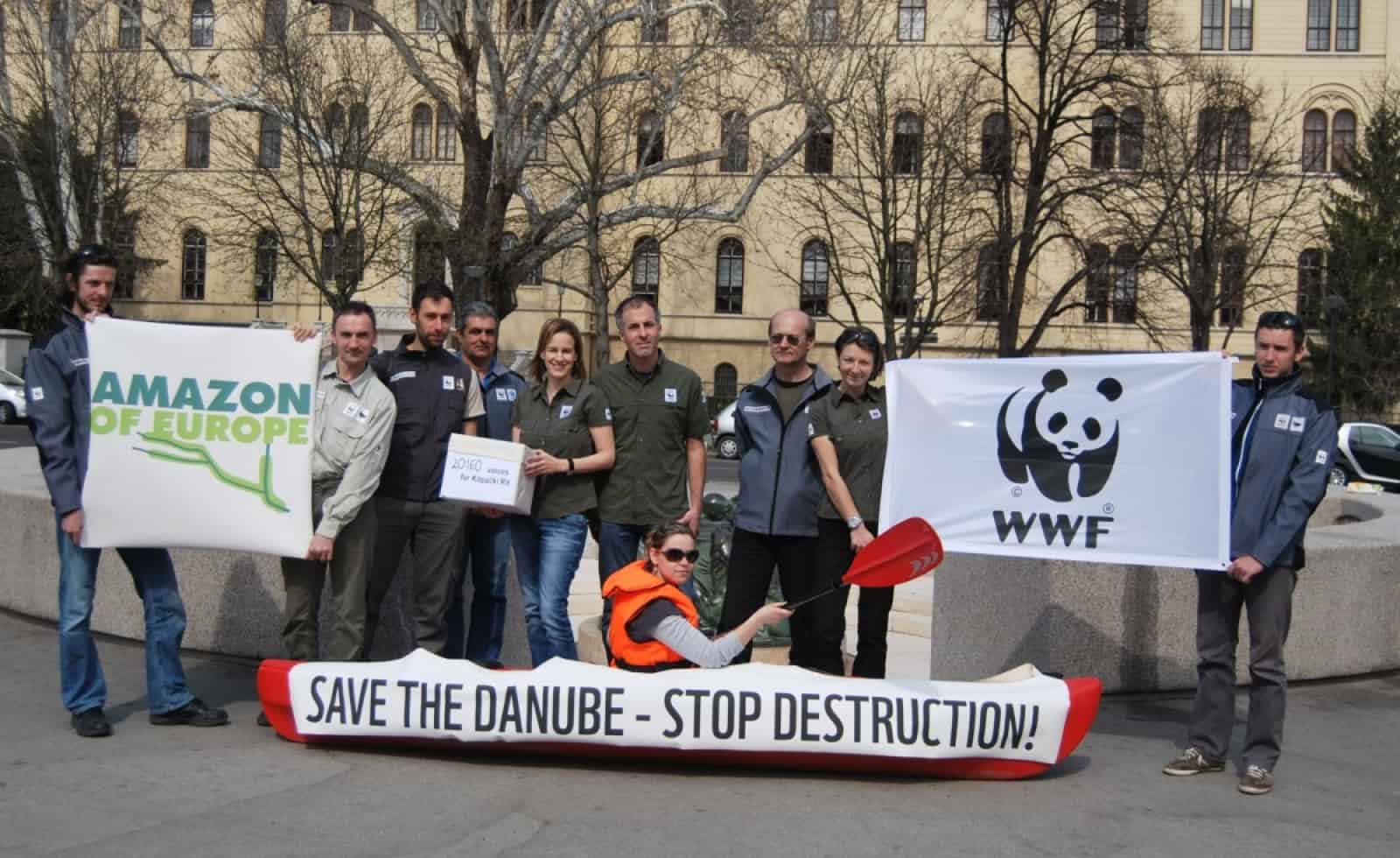
Zagreb, 1. Februar 2012 – Der WWF machte heute mit einer ungewöhnlichen Aktion auf die Bedrohung der kroatischen Flüsse aufmerksam: Sechs Männer in Uniformen mit der Aufschrift "Riverwatch" entrollten ein langes blaues Band auf dem Hauptplatz von Zagreb. Bei den "Riverwatchern" handelt es sich um Freiwillige, Mitglieder von NGOs, die – zu Fuß und in Kanus – Flussabschnitte entlang der Donau, Drau und Mur kontrollieren werden. Im Zuge ihrer Kontrollgänge wollen sie Kanalisierungsmaßnahmen an, sowie Sand- und Kiesbaggerungen aus den Flüssen aufzeigen. Diese Maßnahmen schädigen die natürlichen Flüsse Kroatiens in ihrer ökologischen Intaktheit. Sie widersprechen sowohl dem EU-Recht als auch internationalen Umweltstandards. Der WWF kündigt an, die von den "Riverwatchern" beobachteten Eingriffe in die Flussökosysteme zu prüfen. So sie gesetzwidrig sind, wird die Naturschutzorganisation die kroatische Regierung und die EU-Kommission davon in Kenntnis setzen.
Weitere Informationen siehe die Presseaussendung in Englischer Sprache:
Riverwatchers to protect the “Amazon of Europe”
Zagreb, Croatia, February 1st, 2012 – A long blue band waved by six men wearing uniforms on Zagreb’s central square today marked the start of WWF’s Riverwatch campaign aimed at halting destruction of Croatia’s unique natural rivers: the Danube, Drava and Mura – Europe’s Amazon. All three rivers are under threat from channelling works as well as from gravel and sand extraction. This poses a severe threat to unique wetlands and to Europe’s largest and best preserved floodplain forests.
The Riverwatchers are volunteers who – on canoe and on foot – will patrol a total of 470 km of the rivers for at least the next two years. Riverwatchers will keep an eye not only on the Croatian stretches of the rivers, but also on Hungarian and Serbian shores as these rivers are natural borders between the three countries.
“If we find something inappropriate we will inform the Croatian government as well as the European Commission who like to know if there are activities going on which are not in line with EU law”, said Tibor Mikuska from partner organization Croatian Society for the Protection of Birds and Nature, coordinator of the Riverwatch campaign.
“For the first time in Croatia and in Eastern Europe, a network of people who care about their rivers is taking action”, said Arno Mohl, WWF International Freshwater Expert. “To protect successfully our rivers from destruction, it is key to monitor the situation on the ground regularly and to take action when necessary”, Mohl said.
Devastating actions taken by the water authorities in Croatia as well as in Hungary and Serbia severely harm the three natural rivers and their inhabitants. The area is home to the highest density in Europe of breeding pairs of White-tailed eagle and endangered species such as the Little tern, Black stork and Ship sturgeon. It is also an important stepping stone for more than 250,000 migratory waterfowls every year. The survival of these vulnerable species depends on preserving intact the “Amazon of Europe”.
In December 2011 Croatia signed the EU Accession treaty to become an EU member in 2013. This obliges Croatia to comply with EU law and to protect its unique natural rivers. In September 2011, the Danube, Drava and Mura riverine area was nominated to become part of a 5-country Transboundary UNESCO Biosphere Reserve together with Austria, Hungary, Serbia and Slovenia.
The Riverwatch campaign is being implemented in partnership with a wide range of local NGOs.
Contact:
Olga Apostolova, Regional Communications Officer, WWF Danube Carpathian Programme,
Tel. +359 885 727 862, E-Mail: oapostolova@wwfdcp.bg
Claudia Mohl, Press Officer WWF Austria, Tel. +43 1 488 17-250, E-Mail: claudia.mohl@wwf.at
Rückfragen
News
Aktuelle Beiträge
WWF-Auswilderungsprojekt: Tiroler Wisent-Kuh „Ina” erfolgreich im Kaukasus freigelassen
Naturschutzorganisation siedelt Wildrinder in ihrer Heimat Aserbaidschan an – Kuh „Ina” aus Innsbruck ist eines von 18 Tieren – WWF: „Paradebeispiel für internationalen Artenschutz”
Stromanbieter-Check: TIWAG fällt bei Stromanbieter-Check durch
129 heimische Stromanbieter von WWF und GLOBAL 2000 analysiert – TIWAG aufgrund von mangelnder Transparenz und fehlender naturverträglicher Strategie nur auf Platz 116
Stromanbieter-Check: Wenige Vorreiter, viel Intransparenz
WWF und GLOBAL 2000 analysieren 129 heimische Stromanbieter: Nur drei Vorreiter gekürt, schlechtes Zeugnis für viele Landesenergieversorger
Tiwag-Talschaftsverträge: WWF fordert Reformen statt heimlicher Absprachen
Geheime Vereinbarungen erst nach Gerichtsbeschluss offengelegt – WWF fordert volle Transparenz, unabhängige Kontrolle und neue Spielregeln für künftige Verträge
Good News: Neues Jahr bringt Fangverbot für Störe in Bulgarien
Bulgarien hat ein dauerhaftes Fangverbot für Störe in der Donau und im Schwarzen Meer eingeführt. Der WWF Bulgarien spielte dabei eine Schlüsselrolle.
Treibhausgas-Bilanz: WWF warnt vor drohendem Verfehlen der Klimaziele
Ausblick negativ, Österreich nicht auf Kurs für 2030 und 2040 – Verfehlen der Klimaziele wäre „politisches Debakel der Sonderklasse“
WWF zum Ableben von Andreas Pataki
Früherer Bürgermeister von Marchegg und langjähriger Partner im WWF-Auenreservat Marchegg verstorben – WWF würdigt Lebenswerk und Einsatz für Natur
Good News: Abkommen als Meilenstein für Meeresschutz
Das neue Jahr läutet eine neue Ära der Meerespolitik ein: Durch das internationale Abkommen zum Schutz der Hohen See gibt es nun endlich Regeln für zwei Drittel der globalen Meeresfläche.

